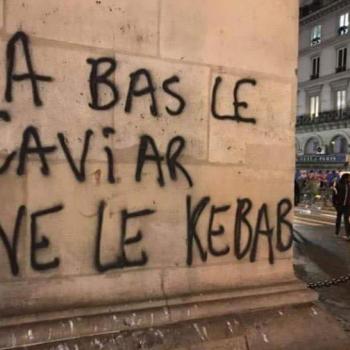In my last post I defended my community, the Dawoodi Bohras, from accusations of Mr. Qutbuddin’s faction about the role of women and traditional values. The great flaw in my arguments of course is that I am a male. So here are many female voices from my community to speak for themselves instead.
For example, Rashida Mustafa writes at her blog, Child on Hip and Hand on Computer:
To be shouted down in the kind of storm levelled at us by the followers of Qutbuddin is judgemental and an offensive act of organised bullying and should be regarded as such.
On the other hand, it is vital not to disparage housework or to think that looking after a home requires no skill that ought to be taught. From Cleaning and Craft to Child-Psychology, there are subjects in the Home Science curricula that are more useful and fulfilling to the average woman than many others on offer. Entire curricula are being changed to accommodate this reasoning in progressive learning environments. New sets of qualifications are being generated with the same credit value and equivalence as the more old-fashioned academic disciplines so that our cherished values of equal rights, equal opportunity and equal dignity for every human being are reflected in the learning we promote. Nothing except complete arrogance and brutality would dismiss the rights of women at home or their roles and their work to the dustbin of the unaddressed.
Moreover, it is our belief, that of our own faith, that from these home-grown entrepreneurships women can be more economically independent and successful than when relegated to the brokerage of the service industry. Never mind women, it is our belief that even men will be more successful, independent, religious and courageous in their small corner shops than when employed by the Corporation. Would MoulaTUS then, advocate independence for men and servitude for women?
Why is it then, that we allow ourselves to be shaken up when we are told to reconsider our values? We have invested too much in the skills of servitude and like the prisoner who is released at last, we stand at the prison gates and wonder if we know how to live a life without drill. “Take me back in! Please give me a job! Tell me what to do!”
Meanwhile, the group blog Dawoodi Bohra Women has a number of posts by Bohra women, by professionals like Dr. Alefiyah Bharmal:
What a great advantage I had over my peers. I began graduate school and there were several times after completing my Masters when I just wanted to give up on my doctorate. It was so hard to juggle so many roles– a mother, wife, madresah teacher, and doctoral student. As I tucked my 9 month old into bed, cleaned the kitchen, and said goodnight to my family, I closed my eyes for a moment before pulling another “all nighter”, and every time I would feel the barakat from Moula’s RA raza telling me that he has faith in my success. This thought got me through endless nights of studying, tests, presentations, and papers. HIS barakat is present in my every amal as a psychologist.
housewives like Jamila Badroudine:
As we all know “health is wealth,” and in today’s times where people are health conscious, our beloved Moula TUS has taught us through simple ways how to attain that goal. Making roti, cooking food, and keeping the environment clean leads to a healthy life and keeps the family happy, too; a happy and healthy life leads to positive thinking.
single mothers like Rashida Sh. Najmuddin:
I understand the need to highlight the importance of women’s education. Having taken Arabic as an undergrad, my limited understanding of the language tells me that when Rasulallah SA has said that to seek ilm is farizat on every muslim and muslimah, the Arabic grammar would have encompassed the feminine gender along with the masculine even if the hadith had only included the word muslim. Yet, Rasulallah SA chose to use the word “muslimah” along with the word “muslim” highlighting the importance of a woman’s requirement to seek ilm. My daughters’ education is something that Rasulullah and my Moula TUS are both telling me is absolutely necessary.
and artists like Tasneem Mandviwala:
In a post 9-11 U.S., it certainly has become a very particular experience to be a Muslim woman in America. There are new challenges to navigate everyday with unknowable social outcomes lying in the future that we have to feel out, day by day. Ironically, even though my faith, worn visibly over myself in the form of a rida (a specific type of hijab), might on some level be held responsible for non-Muslim Americans’ sometimes initial, sometimes persistent negative views of me, it is this faith itself that allows me the strength to be patient and understanding in the face of ignorance.
Also worth reading is Durriya Badani’s reflections on the importance of the thaali program to her family, in a guest post at City of Brass:
Part of my faith is rooted in the countless moments of love I have experienced through my prayers, and emphasized in the following phrase, “Hal al-din illal Hub? Hal al-din illal Hub? Hal al-din illal Hub?” (“What is faith, except love?”) Syedna Saifuddin reminds us again and again, with Faiz al-Mawaid al-Burhaniyah being just one powerful example of how he has translated those words into meaningful action and impact. It is also another example of the way in which Syedna Saifuddin continues the legacy of Syedna Mohammed Burhanuddin.
These are voices as authentic and as diverse as our community itself, and should be taken into account when hearing outsiders’ accusations. I am proud to be a part of a community that can mesh modernity and tradition so seamlessly. These are not the voices of oppressed women, but women who have freedom to make choices for themselves.












